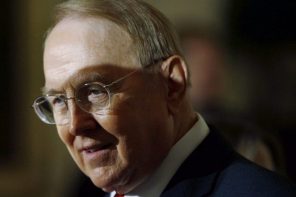What inspired you to write God Needs No Passport? What sparked your interest?
I’ve been studying immigrants in the United States for nearly fifteen years. While many of my colleagues study how newcomers become part of the countries to which they move, my work has convinced me that we can’t understand what it means to help newcomers become Americans without looking at how immigrants maintain ties to their homelands at the same time. While migrants and non-migrants are separated by physical distance, they often continue to inhabit the same social space. The fate of those who move and those who stay behind are inextricably linked.
In my first book, The Transnational Villagers, I wrote about the cross-border ties connecting Dominicans who moved to Boston and their friends and relatives who stayed home. When I finished that project, I realized that religion played a central role in making transnational lives possible, and that the religious landscape changed dramatically in the process. This was something that migration scholarship had not really explored.
What’s the most important take-home message for readers?
God Needs No Passport has three take-home messages. The first is that we need to learn to think outside the nation-state box. Many people automatically assume that social life always has and always will take place within nation-state containers. But that blinds us to the many ways in which the world actually works. In addition, it leads us to believe that becoming part of the country of reception and staying part of the country of origin are at odds with each other when, in fact, they are often simultaneous processes that mutually reinforce each other.
My second key point is that just as we need to think outside the nation-state box, so we need to think outside the Christian box. When we talk about religious pluralism in the United States, we often mean diverse manifestations of Christianity. Many immigrants, though, are introducing new faith traditions and Asianizing and Latinoizing old ones. They bring very different ideas about what religion is and where to find it. If we care about preserving and deepening religious pluralism in this country, we need to make room for a wider variety of religious experiences.
My last take-away point is that there is a role for religion in progressive politics. The religious right has controlled the religious airwaves in the United States for far too long. That’s caused liberals and secularists alike to ignore religion or wish it would go away. It’s an underutilized political resource that has an admittedly checkered but often positive history. The immigrants from India, Pakistan, Brazil, and Ireland I talked with while writing this book are potential partners on all sides of the political spectrum. They ultimately care much more about the bread and butter issues like family, community, and jobs that most of us care about.
Anything you had to leave out?
Lots. It’s impossible to capture the complexity of people’s everyday lived religious experiences but I really tried to help bring immigrants’ voices to the fore.
What are some of the biggest misconceptions about your topic?
My answer to your take-way point question speaks to that. Our national debates about immigration, religion, and the nation are based on assumptions that don’t match how people actually live. We need to talk to immigrants themselves to see what they actually think and feel.
Did you have a specific audience in mind when writing?
God Needs No Passport is really two books in one–a more popular book in the text and a more scholarly book in the footnotes. I wanted to write a book based on rigorous sociological research that was accessible to a broad audience. I also wanted to “translate” sociology so that it would be useful to policymakers.
Are you hoping to just inform readers? Give them pleasure? Piss them off?
I’m hoping to challenge their misconceptions, better inform our national conversation, and inspire people to invent new ways to address poverty and underdevelopment. Transnational problems need transnational solutions but we don’t have many institutions right now that can solve problems across borders. Religious communities are potentially positioned to powerfully fill that gap. I also wanted to challenge liberals and secularists (many of my academic colleagues, in fact) to take a more honest look at religion and not just to will it away because they aren’t believers themselves.
What alternate title would you give the book?
God Needs No Passport: Immigrants and the Changing Religious Landscape because one principal theme in my book is that American religion is not just made in America but around the world. In fact, it’s just as global as our economics and politics.
How do you feel about the cover?
I love it because my husband. Robert Levers, designed it.
Is there a book out there you wish you had written?
Not one that I can really think of right now.
What’s your next project?
The obvious next step is to ask how the children of immigrants express their faith in the United States because they are the new face of Hinduism and Islam in this country. I’ve begun to have some very interesting conversations with undergraduates and graduate students about these topics. I also want to write about how global culture is created and disseminated. That is, if we believe that we live in a global civil society, how do we create global citizens and where do the values that underlie global citizenship come from?
Visit our RDBook page for a complete list of our interviews with authors.


